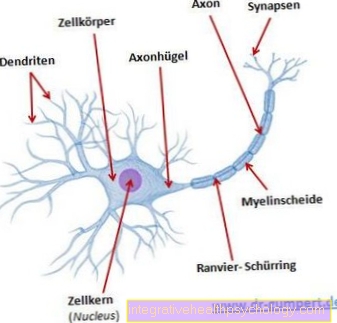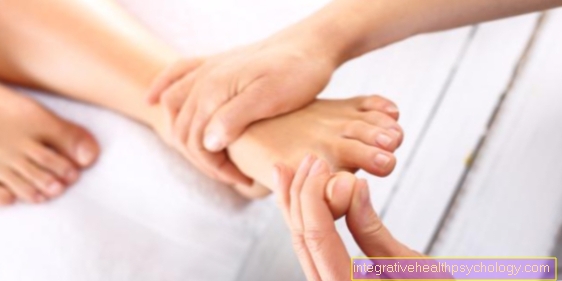Educational goals
Definition - What are educational goals?
In education, the development and behavior of the growing person is influenced. The child is taught rules, norms and certain behavior that enables him to become part of society. In doing so, certain goals are set beforehand, which the educator can use again and again to guide the child in a specific direction. The goal represents a desirable state in the future that does not exist in the present situation. Since education comes from different sides, such as the family, kindergarten and school, there are also different educational goals.
Also read more on topics: Educational mandate and raising children

What are the educational goals in parenting?
Parental upbringing is crucial for personal development in children. The children orientate themselves towards their parents, not only with regard to polite behavior and rules that must be adhered to in everyday life, but also with regard to morals, customs, norms and the development of virtues. Parents thus have a direct influence on the child, for example when they tell him how to behave. In addition, children are indirectly influenced by imitating their parents 'behavior and unconsciously adopting their parents' opinions. Accordingly, it is important that parents are always aware of their role model.
Read more about these topics: Authoritative parenting - everything related to this parenting style
A very important educational goal of parents should be the wish to raise their child in such a way that it can develop a strong personality, develop freely and live its own wishes and dreams. Parents can recognize the child's first interests and abilities from a very early age and strengthen them so that a person develops who walks through the world with confidence and has the courage to express his or her opinion freely. This educational goal goes hand in hand with that of assertiveness, in the sense of inner strength and self-confidence.
Furthermore, an important educational goal is that the adolescents learn politeness and good behavior. The children should be taught considerate behavior that expresses respect for the other person. Accordingly, respect in the form of tolerance also belongs to desirable goals. Just like compassion, from which a willingness to help grows.
In addition, the goal of punctuality and conscientiousness, with regard to work, but also in private life, is repeatedly stated in parent surveys. This goal goes hand in hand with the educational goal of a sense of responsibility and the ability to achieve something independently or to work for yourself. In addition, it is important to many parents that they can give their child a lot of education and arouse in them a thirst for knowledge that will never let them learn in their lives.
Furthermore, a frequent educational goal is that the adolescents learn a healthy lifestyle and shape their lives accordingly. In addition, there are many other educational goals, such as thrift, courage, humor, honesty, ambition, perseverance, knowledge of human nature, etc., each of which is given a different degree of importance by each parent, so that each child enjoys a very individual upbringing.
Read more about these topics here: Anti-authoritarian upbringing and educational assistance - what is it?
What are the educational goals in kindergarten?
In our western world and culture, a large number of educational goals apply as a basic norm that everyone has to adhere to. But this basic norm has to be taught to the children because they don't understand it by themselves. Accordingly, the educators in the day-care center have a very important role and a whole series of educational goals that they gradually teach the children.
Read more about the following topic here: Daycare or childminder - which type of care is right for my child?
These goals include accepting and respecting the respect and dignity of each individual. This goes so far that the kindergarten children have to learn that they should also have respect for the opinions and convictions of the other. This notion of tolerance should continue to grow into charity and willingness to help. This happens through daily contact with other children and the positive role model of the educator.
Conflicts arise again and again in a group, which the children should learn to resolve calmly. It is also important that the children learn to deal with criticism. In summary, the learning of respect, tolerance and sympathy for the other towards the child should help to build first relationships and friendships outside the family.
This educational goal should also ensure that the child develops a positive image of himself and thus builds up enough self-confidence so that he has the courage to express his own opinion and also dares to say no. The children are thus brought up to develop their own personality. They are motivated by the educators to organize their everyday lives themselves. The children should be brought up in such a way that they can decide for themselves which materials they want to play with and for how long. The child should learn to act independently, but also recognize his responsibility in the group. This means that the aim of education is to take on tasks within the group. This includes, for example, setting the table or watering plants.
Another educational goal is to strengthen the children's curiosity and guide it on a productive path. Accordingly, the children in the kindergarten are provided with an educational and varied environment. This environment should also advance the educational goal of training and promoting the creativity and imagination of the children.
Furthermore, the children should be taught respect for all life. The kindergarten teachers lead the children to a mindful approach to nature so that the children can learn to deal with animals and plants. In addition, they should learn to use natural materials respectfully and economically, such as the economical use of water and electricity.
Read more on this topic: Behavioral problems in children and defiant phase
What are the educational goals in school?
In school, teachers have a role as educators, which is why educational goals are also formulated for the school career. In addition to conveying values, the focus is on bringing up a child to become a self-confident, independent, critical and self-critical person. The students are taught how to use the freedom that the state offers them responsibly. The pupils should learn how to help shape democracy, develop a peaceful sense of community and participate in community life. This is to be noted as a political educational goal and plays an important role in maintaining the rule of law.
Not only can the advantages of this system be highlighted in the classroom, but also the disadvantages or completely different systems can be compared with one another. This also includes the willingness to learn from history, which is also formulated as an educational goal. The students should learn to have respect for all nations and to be able to enter into a dialogue with classmates without seeing their own values and morals as overriding. The students should recognize the uniqueness of each individual and accept it benevolently in order to be a supporting pillar in a heterogeneous society.
An important educational goal in this context is the rejection of discrimination and the exclusion of minorities. Furthermore, the students are taught to respect the environment and to treat it responsibly, so that they have an interest in the preservation of the natural basis of life. This also includes the transfer of knowledge in the form of a low-energy lifestyle and resource conservation.
In addition, subject-specific knowledge transfer plays a major role. This includes, among other things, depending on the school, religious education. One goal is respect and tolerance towards other religions. This is intended to promote peaceful coexistence based on benevolence towards the other.
Another educational goal is health education.It teaches the student what a healthy lifestyle is, such as healthy eating. This goal is to allow the students to mature into people who can lead a good and healthy life independently in later life outside the parental home. This also includes sport education and the promotion of sport.
Punishments by teachers against children in school also have their limits. Read our article on this Punishment in Education.
Read more about these topics: Learning problems and poor concentration
Further recommendations from the editorial team
Further information on the subject of education and learning can be found here:
- Educational mandate
- raising children
- Daycare or childminder - which type of care is right for my child?
- Authoritative upbringing
- Anti-authoritarian education
- Educational assistance - what is it?
- Learn
- Learning problems





.jpg)



















-mit-ten-(titanic-elastic-nail)-oder-sten.jpg)



